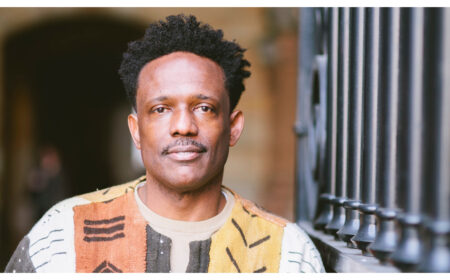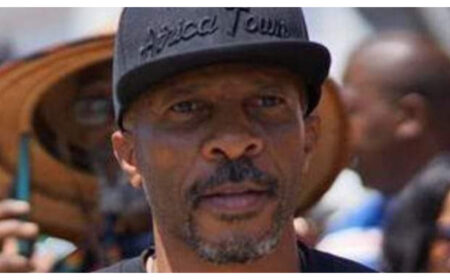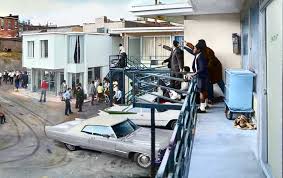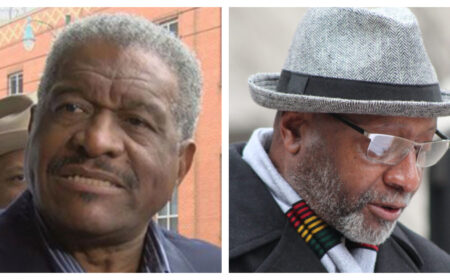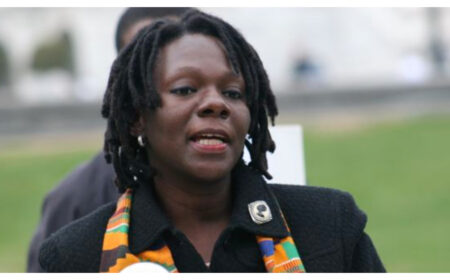Norman Richmond: on Afro-Canadian History
Remembering Garfield Belfon Fourteen Year –Old youth killed by Toronto Police in 1953
Norman (Otis) Richmond aka Jalali
“The police become necessary in human society only at that junction of human society when it is split between those who have and those who ain’t got.” — Omali Yeshitela, Chairman African People’s Socialist Party
Before Black Lives Matter Toronto there was the Black Action Defense Committee (BADC). Sherona Hall, Dudley Laws, Charles Roach, and Lennox Farrell founded BADC). These groups were created to deal with the question of police brutally in the Canadian context.
Little or nothing has recently been written or discussed about the shooting of a 14 year- old Black youth in Toronto in the 1950s. The front page of the Nov. 30, 1953 edition of the Toronto Daily Star could have been written in 2018. The headline reads “Charge P.C. As Boy, 14 Shot Died.” This event took place in the basement of the S.S. White Co. dental building at 250 College Street. The officer had never fired his gun on duty before, told detectives that his gun went off when a pile of packing boxes toppled toward him. The bullet hit Belfon in the neck, killing him almost instantly. Press reports repeatedly said that the police officers’ gun went off accidentally. It is noteworthy that the Star reported, “Belfon was the second person killed in four months by police gunfire. George Hurst was shot jumping over a fence in an attempted burglary in the east end. Constable Earl Snyder charged with manslaughter was freed at the preliminary hearing.”
Three other youths were found in the building at the same time as Belfon. Frank Fuzz, George Marshall and Douglas Richardson all were 16 and were charged with shop breaking. Many will know Douglas as Dougie Richardson who went on to become one of Canada’s foremost jazz artists.

Dougie Richardson
The Toronto Star’s Ashante Infantry wrote in Richardson’s 2007 obituary: “A veteran who’d worked with stellar acts such as Freddie Hubbard and the O’Jays, Richardson was best known as co-leader of the award-winning hard bop group Kollage with boyhood pal drummer Archie Alleyne.” It should be remembered that Richardson also worked with the legendary Chicago comedian/actor Bernie Mac.

Dougie’s father Sam Richardson was a legendary Track and Field athlete. At 15, in London’s Commonwealth Games in 1934, he won his gold medal in the long jump with a leap of 23 feet 8 inches (7.21 metres), and silver in the triple jump. I wrote an article about Richardson for the Globe and Mail in 1983. The late Gwen Johnston reflected on this historical event. I wrote: “Gwen Johnston, a co-proprietor of Third World Books and Crafts and Richardson’s first cousin, remembers how Toronto’s small but enthusiastic black community reacted to Richardson’s victory when he returned. Says Johnston: “You couldn’t get to him, the crowd was so great at Union Station. The community welcomed their young son home. We had a big reception for him at a place called Belvin Hall, which was on College near Spadina. I’ll never forget it.”
A historical event took place on February 15th. A Street in downtown Toronto was named Sam Richardson Way. That day also happened to be Richardson’s oldest son Norman Richardson’s 80th birthday.
he killing of Belfon was headline news in the corporate press in Toronto. Nineteen Fifty-Three was a deplorable year for African people in Canada and the people of the world – period. The year of Belfon’s death was also the same year that the immortal James Baldwin’s award winning semi-autobiographical novel Go Tell It on the Mountain was published.
The Cold War was pretty hot. Dwight D. Eisenhower becomes President of the Empire. Joseph Stalin of the Soviet Union dies. The Land and Freedom Army so-called Mau Mau were on the move in Kenya. General elections were held in “British Guyana” April 27, 1953. They were the first held under universal suffrage and resulted in a victory for the People’s Progressive Party (PPP), which won 18 of the 24 seats in the new House of Assembly. Its leader, Cheddi Jagan, became Prime Minister.
In the US Julius and Ethel Rosenberg are executed. They were accused of conspiring to commit espionage and passing nuclear weapons secrets to Russian agents. In the United States the first color television sets go on sale, for around $1,175. The New York Yankees defeated the Brooklyn Dodgers who had Jackie Robinson and Roy Campanella on their roster. The Yankees were white, on white, in white.

Bromely Armstrong
Bromely Armstrong came to Canada from Jamaica in 1947. Armstrong remembers the merits and demerits of living in Canada. There were issues with the police when he came here. He talks about this in Bromley Memoirs of Bromley L. Armstrong by Sheldon Taylor. Says Armstrong: “Before the Buddy Evans shooting, some police officers allegedly would abuse and brutalize minorities and First Nation’ peoples. However, in such instances care seemed to have taken by those police officers to ensure that their somewhat racially motivated actions were not fatal. This was not the case with the 1950s Belfonshooting.
James Belfon was a barber with a business located near Huron and Dundas streets in Toronto. His son Garfield was shot as it is alleged, when he and a number of other youths were caught in the act of breaking and entering a dental warehouse in Toronto.
A Toronto Chapter of Black Lives Matter was organized in 2013. BADC was founded in 1988 in response to the killing of Lester Donaldson a Jamaican born Canadian, which was the last straw in a series of police shootings of Black men in Toronto. B. Denham Jolly came to Toronto for the first time in 1956. Jolly reflected on how the shooting of Buddy Evans, a 24 year old Nova Scotia born man affected Toronto’s Black community.
Evans was shot dead by a police officer in 1978 during a fight at a Toronto disco. This event led to an 11-week inquest and mobilized African Canadians. The government responded by creating a civilian complaints commission pilot project in the 1980s. Jolly tells the story in his award winning memoir, In The Black: My Life.
The African People’s Socialist Party has declared February 21th as the Day of the African Martyr. El-Hajj Malik El-Shabazz (Malcolm X) was killed inside the Audubon Ballroom in New York City on February 21, 1965. “The African People’s Socialist Party calls on all African revolutionaries of all countries to raise high, in a revolutionary manner, the heroic memory of all our fallen martyrs, of all those in every city, village, community and country where they fell as evidence of the determination of our people to fight every battle on every front until liberty has been won.”
During this time we should also remember Toronto’s Garfield Belfon and Sandra Bland. Bland was a 28-year-old black woman who was found hanged in a jail cell in Waller County, Texas, on July 13, 2015, three days after being arrested during a traffic stop.
Many maintain that African people are oppressed wherever we are. Some go so as far saying that black people are the footstools of humanity.
The great Vietnamese leader, Ho Chi Minh wrote this in 1924: “It is well-known that the Black race is the most oppressed and the most exploited of the human family. It is well-known that the spread of capitalism and the discovery of the New World had as an immediate result the rebirth of slavery. What everyone does not perhaps know is that after sixty-five years of so-called emancipation, American Negroes still endure atrocious moral and material sufferings, of which the most cruel and horrible is the custom of lynching.”
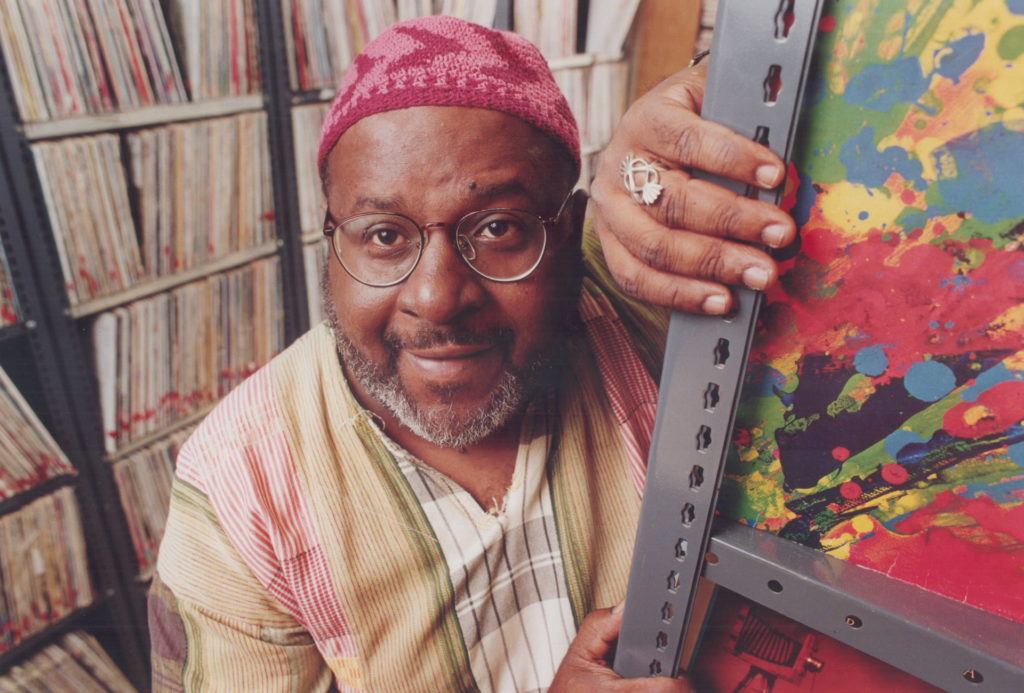
For more informantion [email protected]
